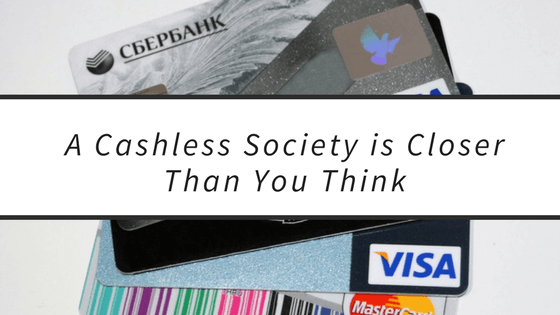As the online marketplace and the prevalence of innovative payment systems increases, the amount of people utilizing physical money is decreasing. Every day, more people are gaining access to credit cards, Apple Pay, and cryptocurrency. It’s no wonder that industry thought leaders are debating if the end is near — for cash, that is.
Why is cash inferior?
Cash is inferior for many reasons. Sure, you have the physical aspect of knowing where your money is, but that’s where the perks end. When using money, you have to physically carry around the notes and change, as well as spend the time counting it out, and the ability to misplace it. On top of that, carrying physical money is less safe than carrying plastic cards. Don’t believe me? Although someone carrying cash has the same chance of being robbed as someone carrying only credit cards, cash is much more difficult to recover, and cards can be shut down almost instantly.
What are some alternatives?
More people in the UK are using cashless forms of payment than money, as of 2015. Naturally, the most common option is a debit or credit card. There are the old swipe-only cards that are being phased out, and many card companies are moving from chip cards to contactless.
On the other hand, Apple Pay and Android Pay are becoming more common each day, with smartphone users increasingly accepting the use of their devices for payment.
Another form of payment is cryptocurrency. This provides an anonymous way to pay for items online, and is taking off as a popular option for people who need to transfer money to other countries. Although it may be years until we see cryptocurrency accepted in brick-and-mortar stores, it still has the ability to reach that point in the future.
What would this mean for banks?
Banks are frequently targeted, due to large funds being available at any given time. If countries phased out physical money, bank heists would almost certainly cease to exist, and more energy could be put toward cyber security. Although criminals would attempt to find ways around this new system, it would be much more difficult.
Another change could be with the older generation. Investing time and resources into informing older clients of changes could be a nightmare for banks. Yet, with the government’s help, there would be ways to avoid the influx of concerned elders.
Where will cash go extinct first?
As it’s only a matter of time before cash is no more, let’s take a look at who might be the first cashless society. Sweden is the clear frontrunner, as their cash transactions make up a mere 3% of total sales. Three of four large Swedish banks are done handling cash in branches, and apps like Swish are providing instant bank transfers between several Swedish banks. This tech boom sets Sweden apart from the rest of the world, who want to join, but are afraid of citizens’ backlash.
Cashless societies are likely not going to be the norm for at least another decade, but once one country starts, it is likely that others will follow. In a few short years, you may never see a single banknote again.

